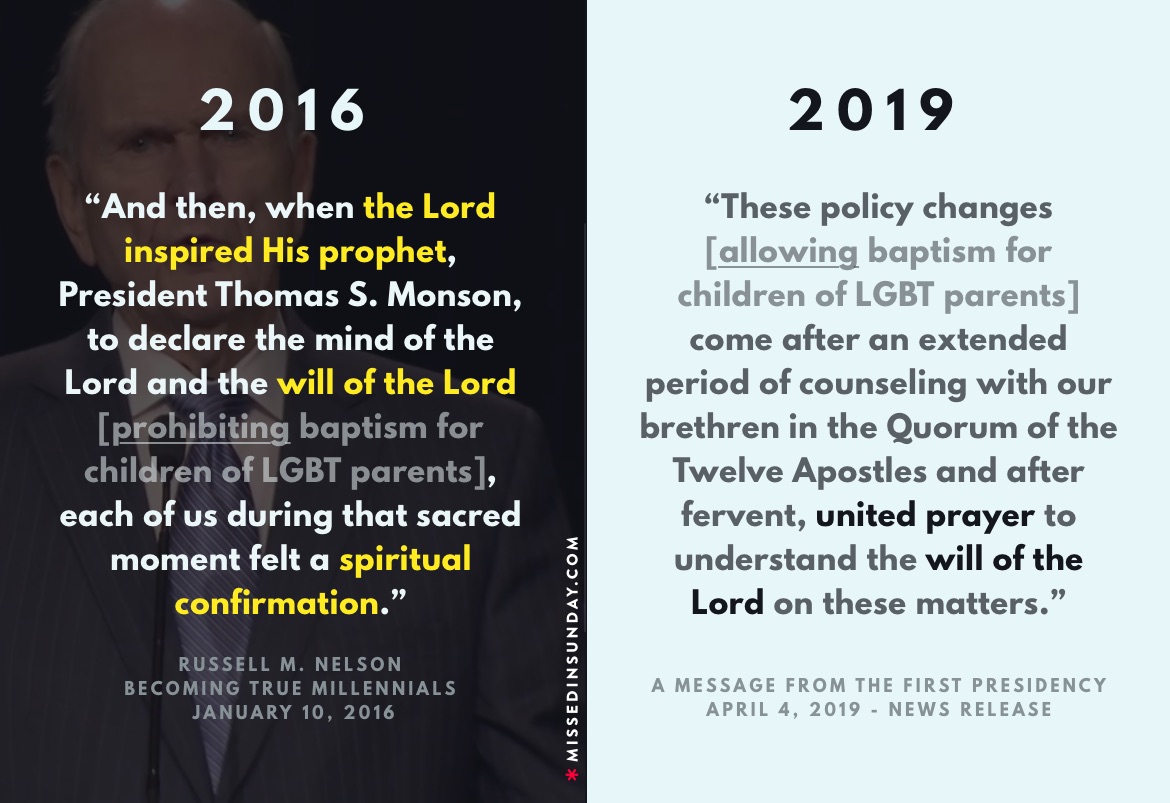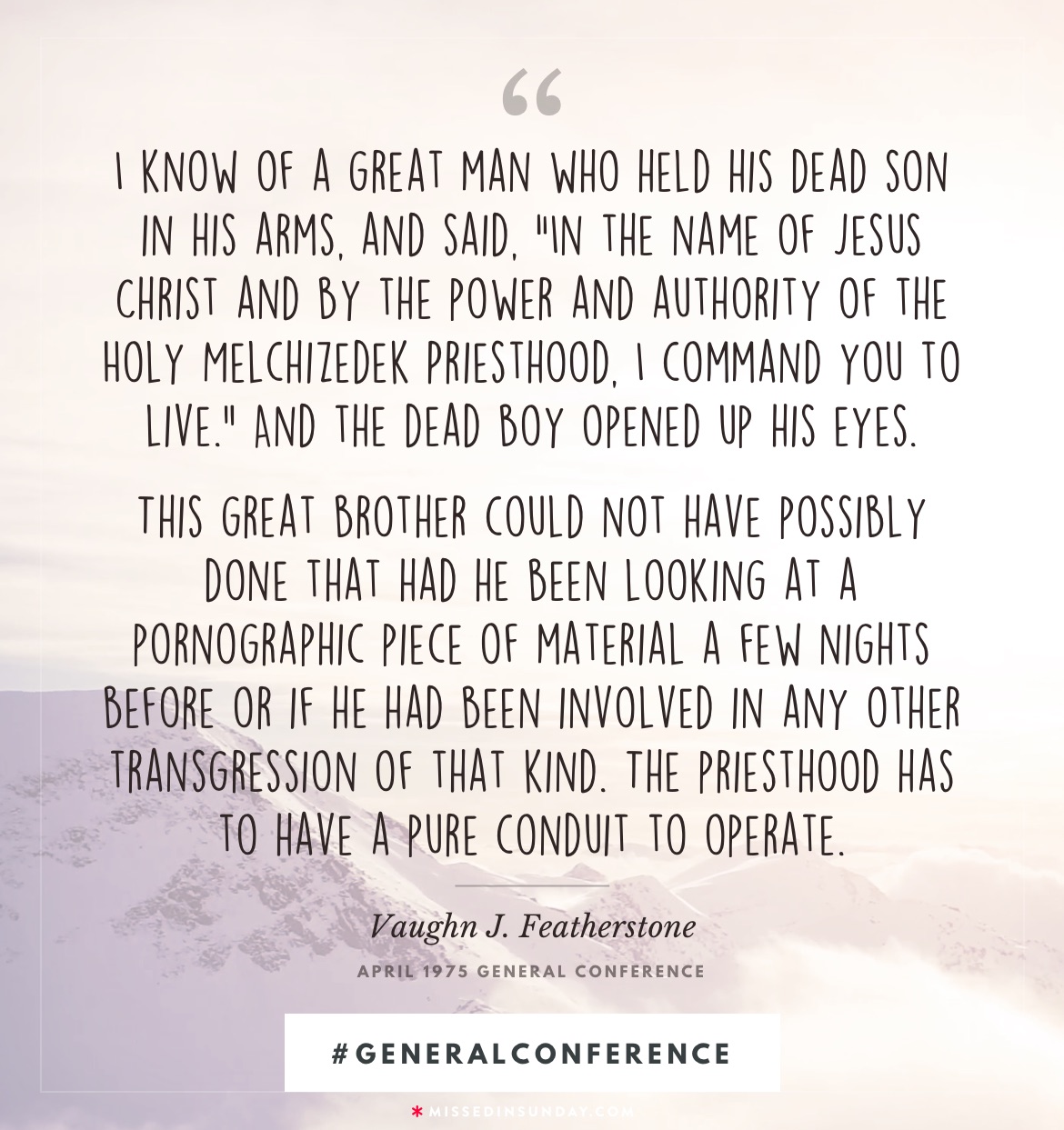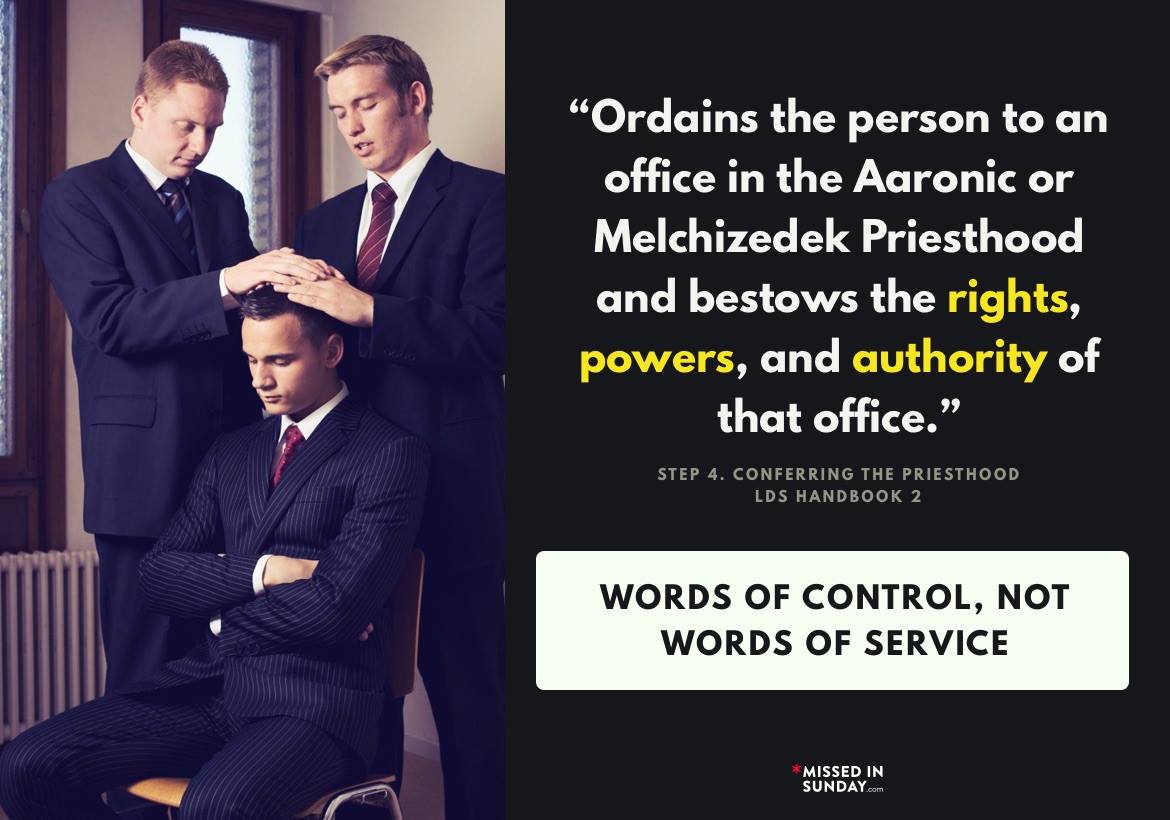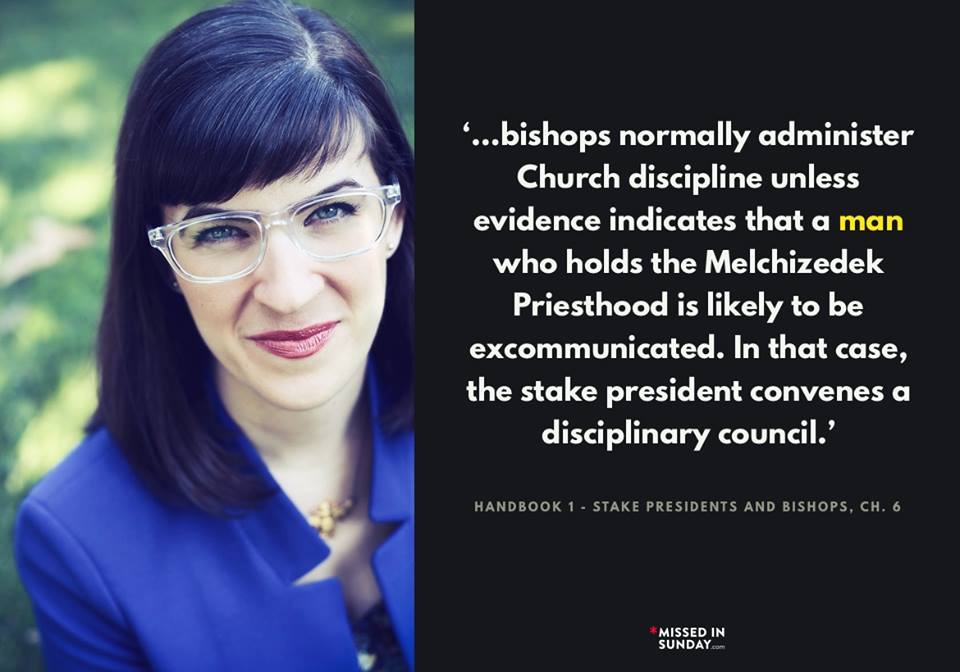Excerpt from a Young Adult Devotional talk by Russell M. Nelson, January 10, 2016: 1
This prophetic process was followed in 2012 with the change in minimum age for missionaries and again with the recent additions to the Church’s handbook, consequent to the legalization of same-sex marriage in some countries. Filled with compassion for all, and especially for the children, we wrestled at length to understand the Lord’s will in this matter. Ever mindful of God’s plan of salvation and of His hope for eternal life for each of His children, we considered countless permutations and combinations of possible scenarios that could arise. We met repeatedly in the temple in fasting and prayer and sought further direction and inspiration. And then, when the Lord inspired His prophet, President Thomas S. Monson, to declare the mind of the Lord and the will of the Lord, each of us during that sacred moment felt a spiritual confirmation. It was our privilege as Apostles to sustain what had been revealed to President Monson. Revelation from the Lord to His servants is a sacred process, and so is your privilege of receiving personal revelation.
Excerpt from a ‘A Message from the First Presidency’, First Presidency Shares Messages from General Conference Leadership Session, 4 April 2019: 2
At the direction of the First Presidency, President Oaks shared that effective immediately, children of parents who identify themselves as lesbian, gay, bisexual or transgender may be baptized without First Presidency approval if the custodial parents give permission for the baptism and understand both the doctrine that a baptized child will be taught and the covenants he or she will be expected to make.
A nonmember parent or parents (including LGBT parents) can request that their baby be blessed by a worthy Melchizedek Priesthood holder. These parents need to understand that congregation members will contact them periodically, and that when the child who has been blessed reaches 8 years of age, a Church member will contact them and propose that the child be baptized.
Previously, our handbook characterized same-gender marriage by a member as apostasy. While we still consider such a marriage to be a serious transgression, it will not be treated as apostasy for purposes of Church discipline. Instead, the immoral conduct in heterosexual or homosexual relationships will be treated in the same way.
The very positive policies announced this morning should help affected families. In addition, our members’ efforts to show more understanding, compassion and love should increase respect and understanding among all people of goodwill. We want to reduce the hate and contention so common today. We are optimistic that a majority of people — whatever their beliefs and orientations — long for better understanding and less contentious communications. That is surely our desire, and we seek the help of our members and others to attain it.
These new policies are being sent to priesthood leaders worldwide and will be included in online updates to our Church handbook for leaders. These changes do not represent a shift in Church doctrine related to marriage or the commandments of God in regard to chastity and morality. The doctrine of the plan of salvation and the importance of chastity will not change. These policy changes come after an extended period of counseling with our brethren in the Quorum of the Twelve Apostles and after fervent, united prayer to understand the will of the Lord on these matters.
References
| 1 | Becoming True Millennials, Russell M. Nelson, January 10, 2016 – https://www.lds.org/broadcasts/article/worldwide-devotionals/2016/01/becoming-true-millennials?lang=eng |
|---|---|
| 2 | First Presidency Shares Messages from General Conference Leadership Session, 4 April 2019 – https://www.mormonnewsroom.org/article/first-presidency-messages-general-conference-leadership-session-april-2019 |








